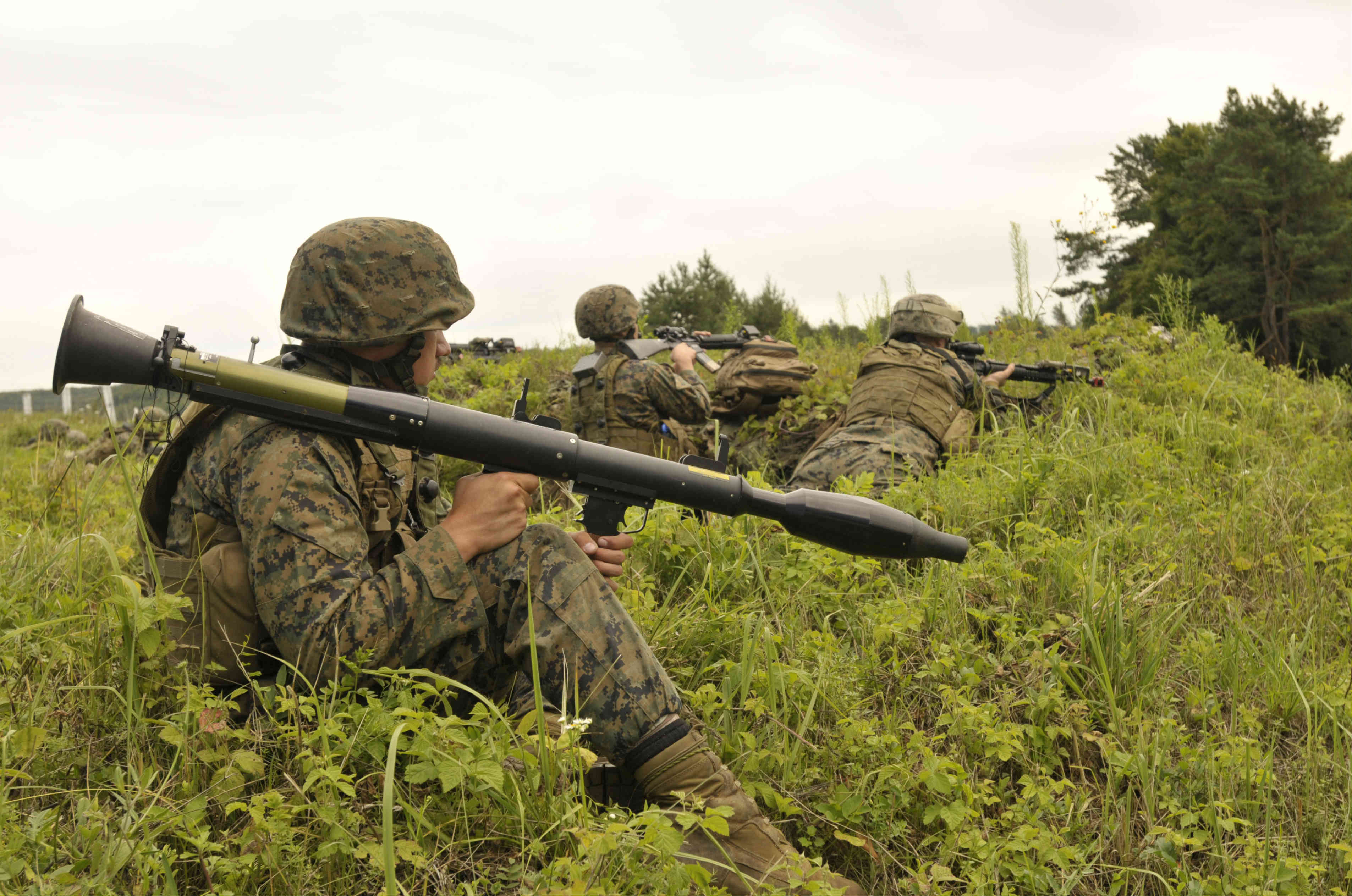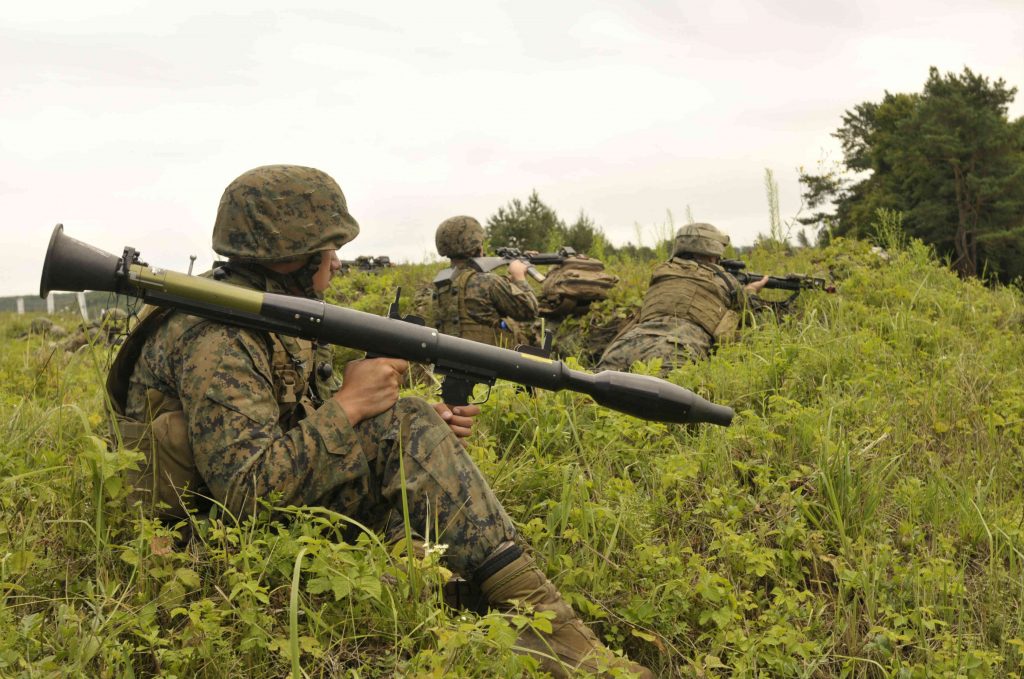 In its August 12 editorial, “Shaky Ukraine: Economics and Corruption Complicate Its War,” the Pittsburgh Post-Gazette calls Ukraine a “questionable partner” because of “resistance to economic reform and use of Islamist Chechen forces.” Too bad neither charge is true.
In its August 12 editorial, “Shaky Ukraine: Economics and Corruption Complicate Its War,” the Pittsburgh Post-Gazette calls Ukraine a “questionable partner” because of “resistance to economic reform and use of Islamist Chechen forces.” Too bad neither charge is true.
The editorial claims that Ukrainian President Petro Poroshenko “added” 2,400 Islamists to the pro-government forces fighting Russian-backed separatists in the east. Yes, Chechens are fighting on behalf of Ukraine. But it is also true that Russia dispatched the Chechen-manned Vostok battalion to fight in Ukraine in the summer of 2014. And it’s also true that Poroshenko and his government didn’t seek out the Chechen volunteers. At the war’s outset, Ukraine’s army was in such poor shape that it gladly accepted assistance from anyone who would fight. But not all Chechens are Islamists or terrorists. Finally, the editorial massively inflates the number of Chechens on the battlefield. Analysts put the number of Chechens fighting for Ukraine side at one hundred. Ruben Gzirian, an Eastern Europe analyst in Washington, says there has never been more than five hundred Chechens on either side of this war. Chechens in Ukraine are not a national security danger.
The editorial also claims that talks among the warring parties in Ukraine “do not appear to be making any progress” toward a lasting ceasefire agreement. Yet that presumes that all parties want to make progress. Russia most assuredly does not. Since the February ceasefire accord, the separatists have captured twenty-eight additional towns and villages and killed two hundred Ukrainians. It’s in Moscow’s interest to keep the situation as it is now—Russian-backed separatists control 9 percent of Ukraine and are bleeding the country dry. The areas they control in eastern Ukraine are an economic liability Russia doesn’t need or want. By draining Ukraine’s finances through war and keeping its eastern borders unsettled, Moscow is preventing Kyiv from eventually joining the European Union and NATO. A recent poll shows that most Ukrainians now favor NATO membership.
As to the second charge, the Poroshenko government has embraced economic reform. Earlier this year, Ukraine’s parliament adopted eight key reform laws—with IMF approval— involving changes in the budget, taxation, pensions, and energy pricing. Anders Åslund, who studies economic transitions in the former Soviet Union, says “the Ukrainian government has implemented these reforms with vigor as never before.” More can be done to curb corruption, but the reform-minded government is making all the right moves.
Ukraine’s economic woes stem from years of mismanagement and the made-in-Moscow war. Kyiv deserves a chance to tackle its domestic problems without fighting foreign intervention at the same time.
The editorial uses incomplete and misleading information to push a policy that would threaten US national security. The root of Ukraine’s crisis is Kremlin aggression, not internal problems. The new Chairman of the Joint Chiefs of Staff, Gen. Joseph Francis Dunford Jr., and the outgoing Army Chief of Staff, Gen. Ray Odierno, have said that a revanchist Kremlin is the greatest national security danger facing the United States. Moscow has a massive nuclear arsenal and the most powerful military in Europe. Since 2008, Russian President Vladimir Putin has sought to shift three European borders—in Georgia in 2008, in Crimea in March 2014, and in eastern Ukraine since April 2014. Western attempts at “reason and reconciliation” after the war in Georgia only encouraged Putin to seize Crimea and sow chaos in eastern Ukraine.
The Pentagon has a strategic interest in deterring further Kremlin attacks in Ukraine. Putin and other Russian officials have repeatedly insisted on their right to a sphere of influence in the entire post-Soviet space, which includes our Baltic NATO allies. Within the past year, Moscow has committed numerous provocations there—including kidnapping an Estonian intelligence officer on Estonian soil and seizing a Lithuanian ship in international waters. If we do not stop Putin in Ukraine, we may have to deal with him in the Baltics. Training and equipping the Ukrainian military is a smart and low-cost way to make Moscow pay for its aggression. That is critical for our national security.
Melinda Haring is editor of UkraineAlert at the Atlantic Council.
Image: US Marines provide security July 29 as part of the Rapid Trident 2015 multinational exercise at the International Peacekeeping and Security Center in Yavoriv, Ukraine. Training and equipping the Ukrainian military is a smart and low-cost way to make Moscow pay for its aggression. Credit: US Army Sgt. 1st Class Walter E. van Otter
